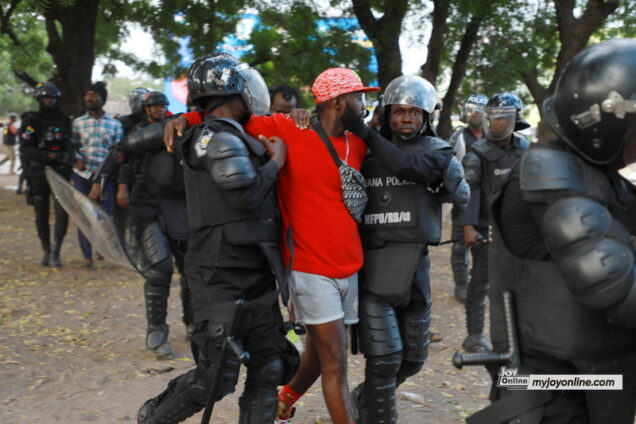A new development in the anti-galamsey movement is the growing involvement of Ghanian student groups. The Katanga Hall from the Kwame Nkrumah University of Science and Technology (KNUST) has recently announced plans to join forces with sister halls from the University of Cape Coast (Casford Hall) and the University of Ghana, Legon (Unity Hall), in a series of demonstrations aimed at raising awareness and pushing for government action.
These student-led protests signal a new phase in the fight against “galamsey”. The youth are no longer content to wait for political leaders to act. Instead, they are mobilising themselves, organising demonstrations that could potentially draw thousands into the streets of Accra and other major cities.
If this collaboration materialises, it could mark a significant turning point in the anti-galamsey movement, further intensifying pressure on the government to act.
What Does This Mean for the 2024 Elections?
With elections fast approaching, the “galamsey” crisis is likely to be a major issue on the campaign trail. The government will have to defend its record on illegal mining and present a credible plan to address the problem if it hopes to win over an increasingly disillusioned electorate.
The opposition, meanwhile, will likely use the issue to criticise the government’s handling of environmental policies, positioning themselves as champions of the people’s interests.
However, the larger question is whether these protests and demonstrations will continue after the election. Will the new administration regardless of which party wins take meaningful steps to tackle the “galamsey” problem, or will it continue to be a political football, tossed back and forth without real progress?
The Way Forward
As Ghana prepares for its elections in December 2024, the nation finds itself at a crossroads. The fight against “galamsey” is not just a political issue; it is a national crisis with far-reaching implications for the environment, public health, and the economy. The youth-led protests, student movements, and calls for celebrity involvement highlight the deep frustration many Ghanaians feel toward their leaders’ handling of this issue.
The outcome of these protests and the upcoming election will determine the future of Ghana’s natural resources and, in many ways, the future of its youth. Whether driven by political interests or a genuine concern for the environment, the fight against “galamsey” is one that cannot be ignored any longer.
The time for action is now, and the decisions made in the coming months will shape the country for years to come.
Latest Stories
-
We’ll partner QNET to fight scams and ensure the right things are done – CID Boss
7 minutes -
OSP declares former Finance Ministry Advisor wanted over SML corruption probe
18 minutes -
From a metal container to global platforms: The inspiring story of Eleanor Ayaovi
25 minutes -
Eric Opoku to contest NDC flagbearership
26 minutes -
JOSCO Principal urges graduating teachers to embrace AI and technology in modern-day education
32 minutes -
Court jails man for 14 years over iPhone 16 Pro Max robbery at Millennium City
44 minutes -
‘She could have died’: Doctor’s gut feeling saves young girl after bias nearly cost her life
46 minutes -
Robbers break into church at Achinakrom, bolt with musical instruments
49 minutes -
10-man Black Satellites edge Benin 1-0 in WAFU-B Boys Cup
50 minutes -
E&P vs Azumah Resources: Black Volta dispute shakes Ghana’s mining oversight – Minority asserts
53 minutes -
Ghana Athletics announce 10 athlete contingent for African U18/U20 championships in Nigeria
55 minutes -
Pathways to the financial regulation of virtual assets (crypto-assets) eco-systems in Ghana: ‘A case for hybrid financial regulatory approach’
56 minutes -
Mahama and Vice President haven’t called me since the assault – Hawa Koomson
56 minutes -
E&P and Azumah Resources dispute poses economic, legal and political risks – Minority
1 hour -
2 arrested for impersonating Gold Board officials, extortion
2 hours

